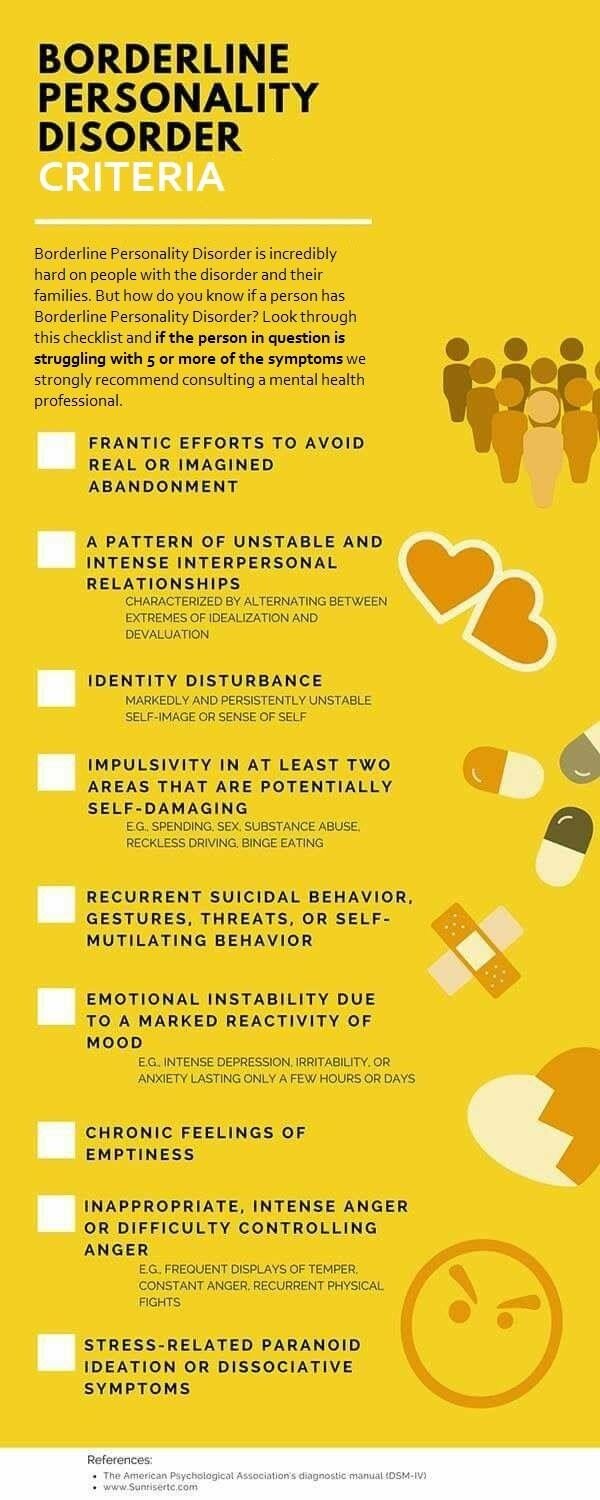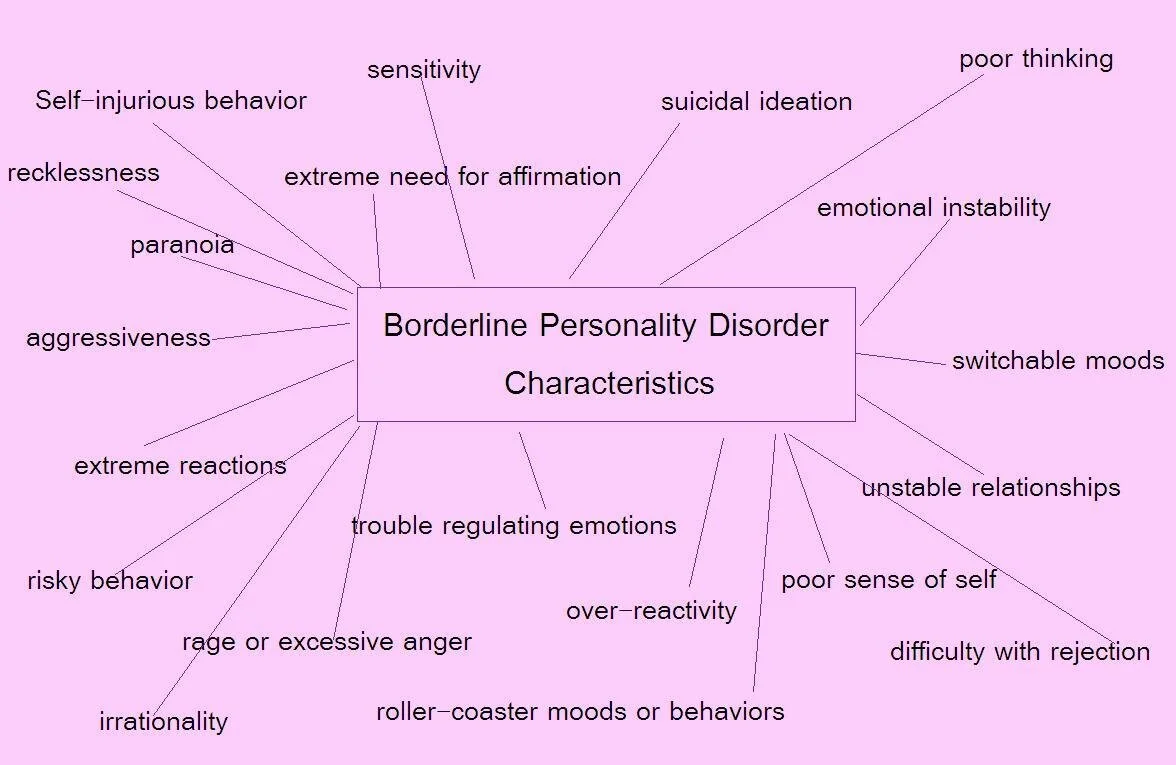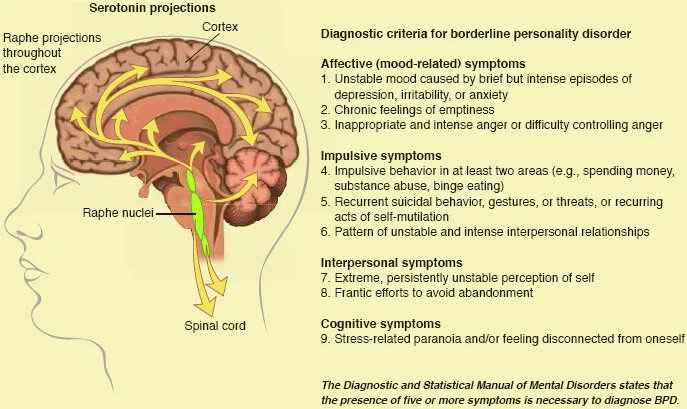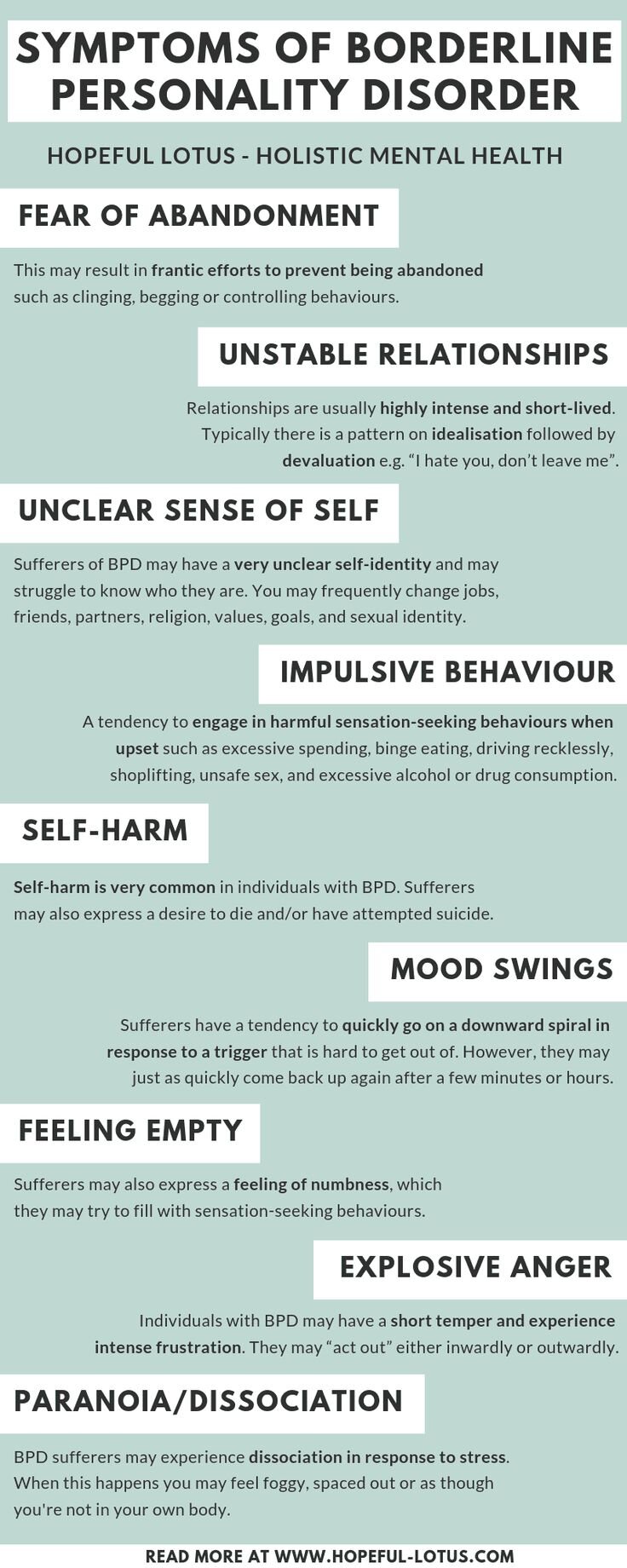QUOTES FROM MARSHA LINEHAN
Realize that good relationships depend on what you do.
If you like someone, let them know.
Sometimes we cannot change the environment significantly, but we can perhaps alter the way in which we perceive it.
Change your behavior and you will change your emotions.
…learn how to tolerate and accept distress.
The goal … is to … find the path to getting out of hell.
Silence is the language of God. Listen.
from: I hate you, don’t leave me, Ch 1
Emotional Hemophilia
Anguish of BPs and their families.
much of BP’s life is relentless emotional roller coaster, no apparent destination.
BP’s family — trip can seem just as wild, hopeless, frustrating.
BPs:
rage uncontrollably against people they love most.
helpless/empty, identity splintered by severe emotional contradictions.
Mood changes:
swift, explosive BP moods — heights of joy —> depths of depression.
anger —> calm, often can’t understand why the wrath.
inability to understand —> more self-hate/depression.
“Emotional Hemophilia”
BP lacks the “clotting mechanism” to moderate feeling. Prick the delicate “skin” of BP —> emotionally bleed to death.
BP rarely has sustained periods of contentment
Chronic emptiness —> depletes —> will do anything to escape.
lows —> impulsive, self-destructive acts
drug/alcohol binges, eating marathons, anorexic fasts, bulimic purges, gambling forays, shopping sprees, sexual promiscuity, self-mutilation.
may attempt suicide, not to die but to feel alive.
“I hate the way I feel. When I think about suicide, it seems so tempting, so inviting. Sometimes it’s the only thing I relate to. It is difficult not to want to hurt myself. It’s like, if I hurt myself, the fear and pain will go away.”
Lack of a core sense of identity.
BPs see self as confused/contradictory, weak identity
To overcome indistinct, mostly negative self-image, BPs, like actors, are constantly searching for “good roles,” complete “characters” they can use to fill their identity void.
BPs often adapt like chameleons to the environment, situation, or companions of the moment.
Lure of ecstatic experiences (ex. sex, drugs, etc) can be overwhelming
In ecstasy, he can return to a primal world where the self and the external world merge—a form of second infancy.
During periods of intense loneliness and emptiness, the borderline will go on drug binges, bouts with alcohol, or sexual escapades (with one or several partners), sometimes lasting days at a time.
It is as if when the struggle to find identity becomes intolerable, the solution is either to lose identity altogether or to achieve a semblance of self through pain or numbness.
The family background of a BP often marked by
alcoholism, depression, and emotional disturbances.
A borderline childhood is frequently a desolate battlefield,
scarred with the debris of indifferent, rejecting, or absent parents, emotional deprivation, and chronic abuse.
Most studies have found a history of severe psychological, physical, or sexual abuse in many borderline patients.
Indeed, a history of mistreatment, witness to violence, or invalidation of experience by parents or primary caregivers distinguishes borderline patients from other psychiatric patients.
unstable relationships carry over into adolescence and adulthood
romantic attachments highly charged, usually short-lived.
BP will frantically pursue love interest one day, send him away the next.
Longer romances—usually measured in weeks or months rather than years—are usually filled with turbulence and rage, wonder, and excitement.
Splitting: The Black-and-White World of the Borderline
BP world of a borderline, like that of a child, is split into heroes and villains.
A child emotionally, the borderline cannot tolerate human inconsistencies and ambiguities;
he cannot reconcile another’s good and bad qualities into a constant, coherent understanding of that person.
At any particular moment, one is either “good” or “evil”;
there is no in-between, no gray area.
Nuances and shadings are grasped with great difficulty, if at all.
Lovers and mates, mothers and fathers, siblings, friends, and psychotherapists may be idolized one day, totally devalued and dismissed the next.
When the idealized person finally disappoints (as we all do, sooner or later), the borderline must drastically restructure his strict, inflexible conceptualization.
Either the idol is banished to the dungeon or the borderline banishes himself in order to preserve the “all-good” image of the other person.
splitting = BP’s primary defense mechanism
splitting = rigid separation of positive/negative thoughts/feelings about oneself/others; that is, the inability to synthesize these feelings.
Most can experience ambivalence, perceive contradictory feeling states
BPs shift back & forth, unaware of one emotional state while in another.
Splitting —> escape hatch from anxiety
BP typically experiences close friend/relation as two separate people at different times.
One day, she can admire “Good Joe” without reservation, perceiving him as completely good; his negative qualities do not exist; they have been purged and attributed to “Bad Joe.”
Other days, she can guiltlessly and totally despise “Bad Joe” and rage at his evil without self-reproach—for now his positive traits do not exist; he fully deserves the rage.
Intended to shield the BP from barrage of contradictory feelings/images, anxiety of trying to reconcile those images—the splitting mechanism
often and ironically achieves the opposite effect:
the frays in the personality fabric become full-fledged rips;
the sense of her own identity and the identities of others shift even more dramatically and frequently.









